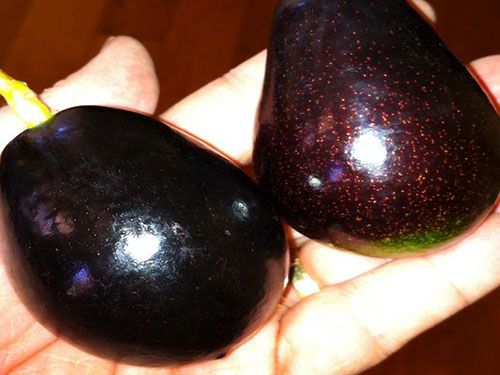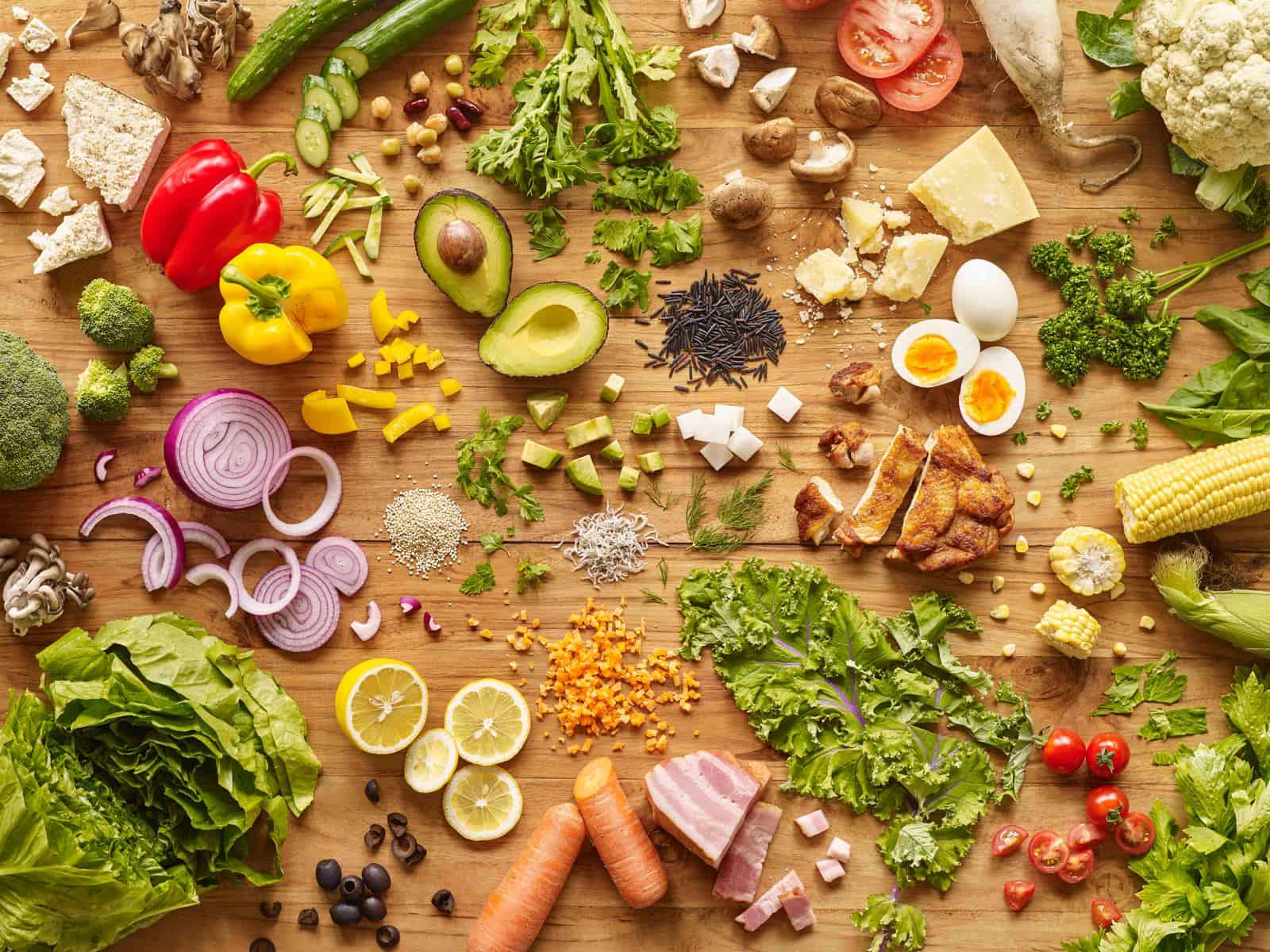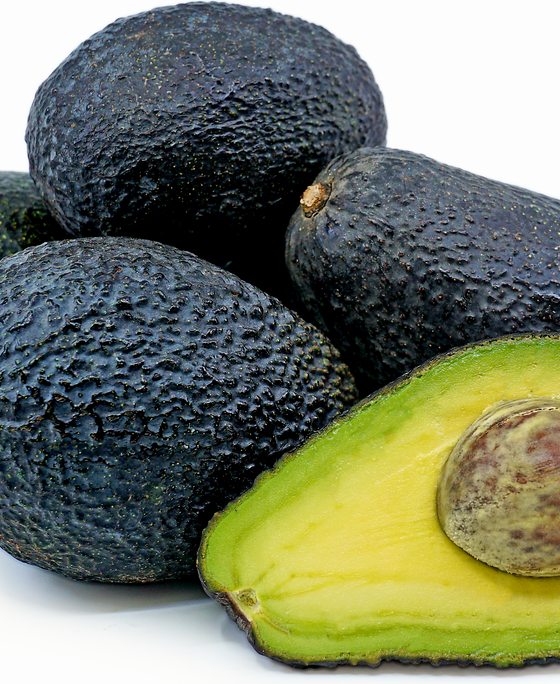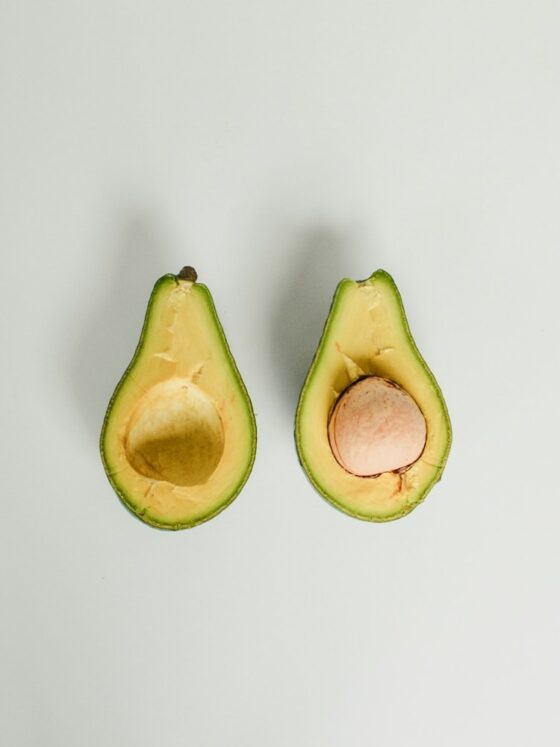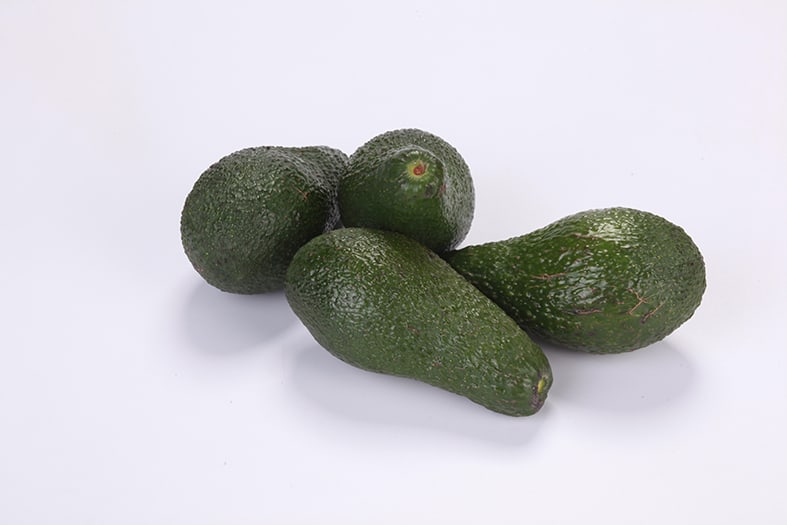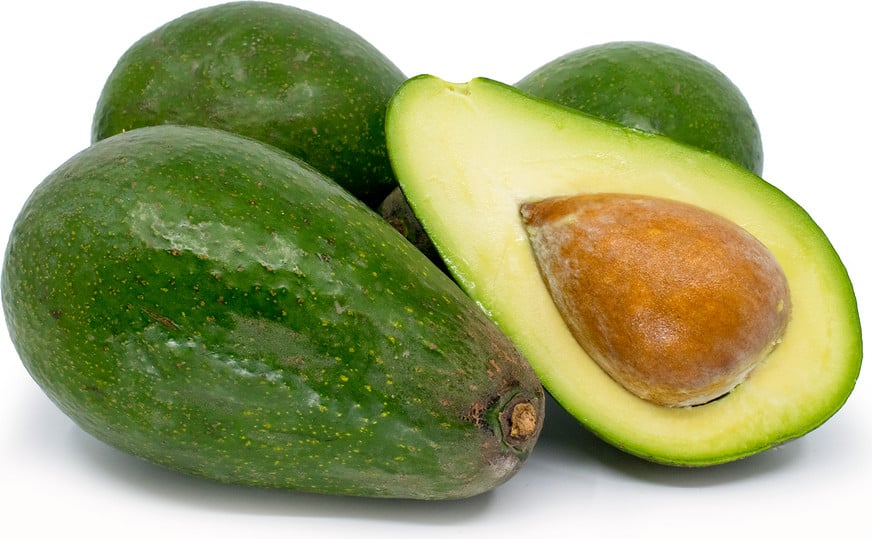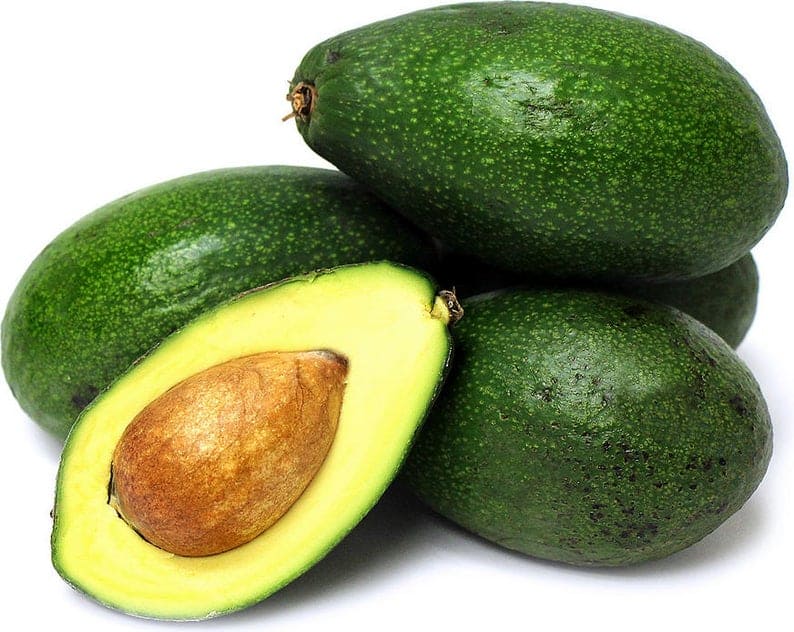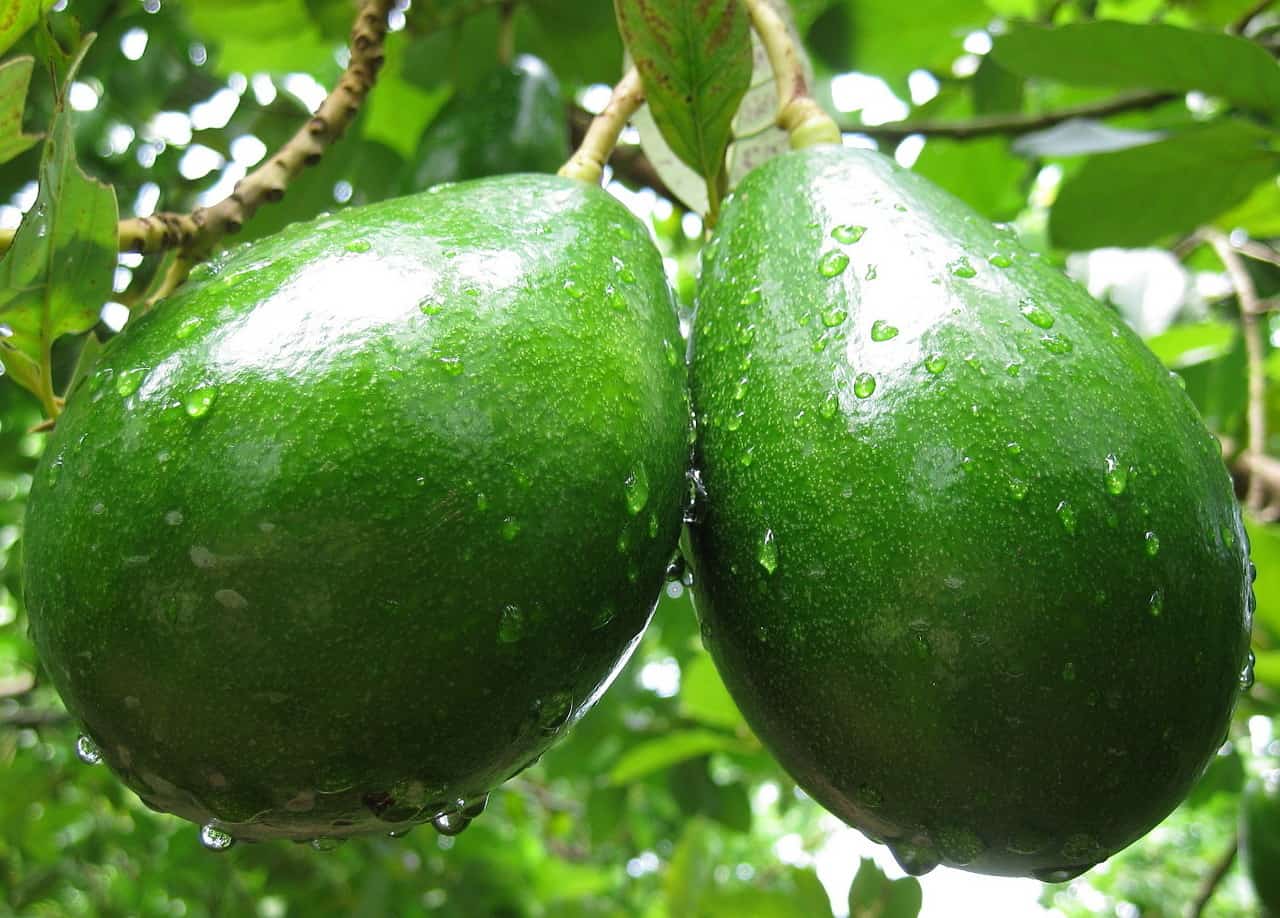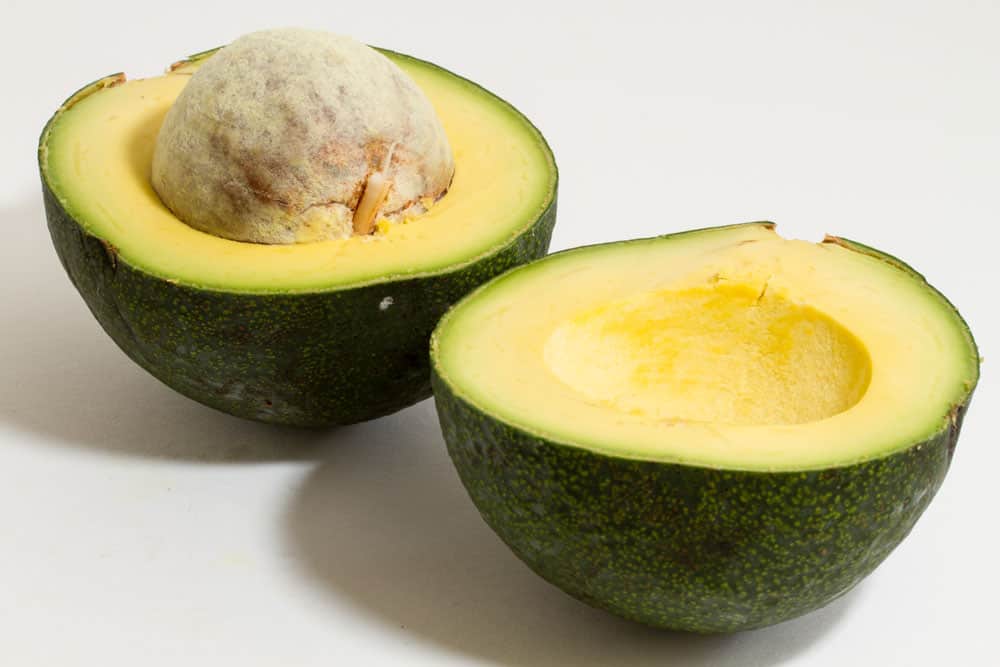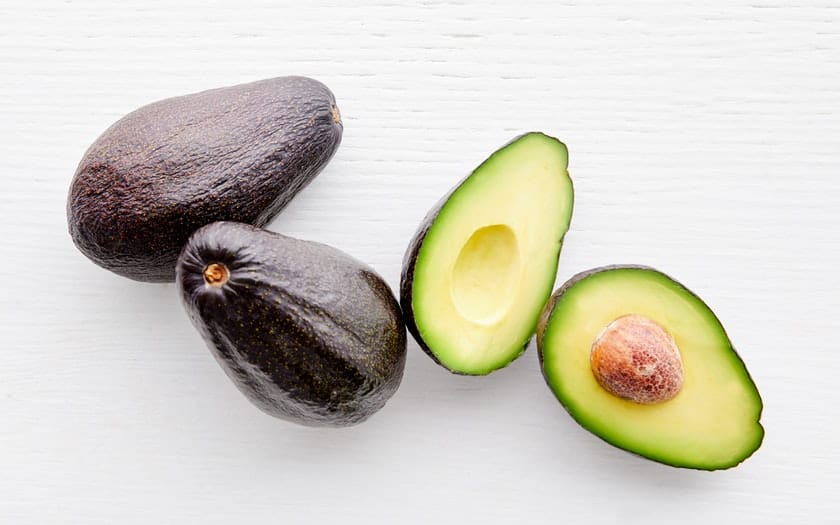The Mexicola avocado is a unique variety of avocados, noteworthy for its cold-hardiness and nutty-flavored fruit. Unlike other avocados, the Mexicola is known for its distinctive thin, black skin that is edible, along with the leaves and seed of the plant. This makes it a particularly versatile fruit for culinary uses.
Known to thrive in a range of climates, including those that experience colder temperatures, the Mexicola can withstand conditions that would typically be unsuitable for avocado trees, extending their growth region significantly.
Cultivating Mexicola avocados is advantageous for growers due to its vigorous growth and resilience to lower temperatures, which can dip as low as 20 degrees Fahrenheit. These trees are capable of producing considerable yields, with individual trees offering up to 30 pounds of fruit per season.
When it comes to their use, the Mexicola’s smooth, buttery flesh, coupled with its rich and slightly nutty taste, make it a favored variety for both fresh consumption and a variety of recipes where avocados can shine, such as guacamole or salads.
Table of Contents
Key Takeaways
- The Mexicola avocado stands out for its cold tolerance and edible skin and seed.
- This variety is productive and resilient, making it favorable for diverse growing conditions.
- Mexicola avocados offer a distinctive flavor and versatility in culinary applications.
Cultivation and Characteristics
The Mexicola Avocado tree is revered for its cold-hardiness and flavorful fruit, with an adaptability that spans a range of USDA Hardiness Zones. Its care requirements are specific but manageable, requiring attention to soil conditions and sunlight exposure.
Growth Habit and Hardiness Zones
Mexicola Avocado trees exhibit a strong, vigorous growth habit, reaching heights of 15-20 feet and widths of 5-8 feet.
Indigenous to the Mexican Highlands, they have a notable tolerance for cold, enduring temperatures as low as 20 degrees Fahrenheit. These trees are suitable for USDA Hardiness Zones 7b through 11, thriving in both outdoor settings and containers, if the pot size accommodates their growth.
Planting and Care Requirements
To ensure successful growth, Mexicola Avocado trees should be planted in locations that receive full sun to partial shade.
They perform best in well-drained soils and can manage in clay soils with proper care.
Regular watering is crucial, especially when the trees are young or potted. Mature trees demand less water but benefit significantly from the application of balanced fertilizer.
While they can flourish in a tropical climate, Mexicolan Avocado trees do not require a tropical environment to produce fruit.
Cultivar Traits and Comparison
The Mexicola Avocado stands out as a self-fertile cultivar, meaning one tree can produce fruit without the need for cross-pollination.
Its fruit is small with a poor flesh-to-seed ratio, yet boasts a rich flavor.
When compared to other avocado varieties, the Mexicola is notably more cold-hardy, making it a suitable choice for regions with cooler climates that would challenge less tolerant cultivars. The skin of its fruit is thin and edible, a trait not common in all avocado types.
Harvesting and Usage
Mexicola avocado trees are valued for their early fruit production and the high-quality avocados they yield. Uniquely cold-hardy, these trees are suitable for growth in diverse climates, including California, Texas, South Carolina, and Florida. They offer fruit with high oil content, distinctive flavor, and an edible, shiny skin, making them a preferred choice for various culinary applications.
Harvesting Process and Timeframe
Mexicola avocados typically begin bearing fruit within 3 to 4 years of planting.
The harvest season generally falls in September, when the avocados turn from green to a soft purple-black hue, signaling ripeness.
The fruit can be handpicked directly from the tree or collected using poles with attached baskets for those situated higher up.
The trees flourish in areas with full sun and are self-pollinating, meaning they do not necessarily require another avocado variety nearby to produce fruit.
Culinary Profile and Nutritional Value
The Mexicola boasts a rich, nutty flavor and creamy texture that rivals the popular Hass avocado. It has higher oil content, which enhances its taste profile, making it a choice ingredient for guacamole or as a spread.
Despite the smaller fruit size and larger seed, the fruit is dense in nutrients and offers a unique characteristic: the skin is thin and edible. The Mexicola’s smaller size doesn’t detract from its culinary versatility, and it remains a nutritious option, rich in healthy fats and water, contributing to a balanced diet.

